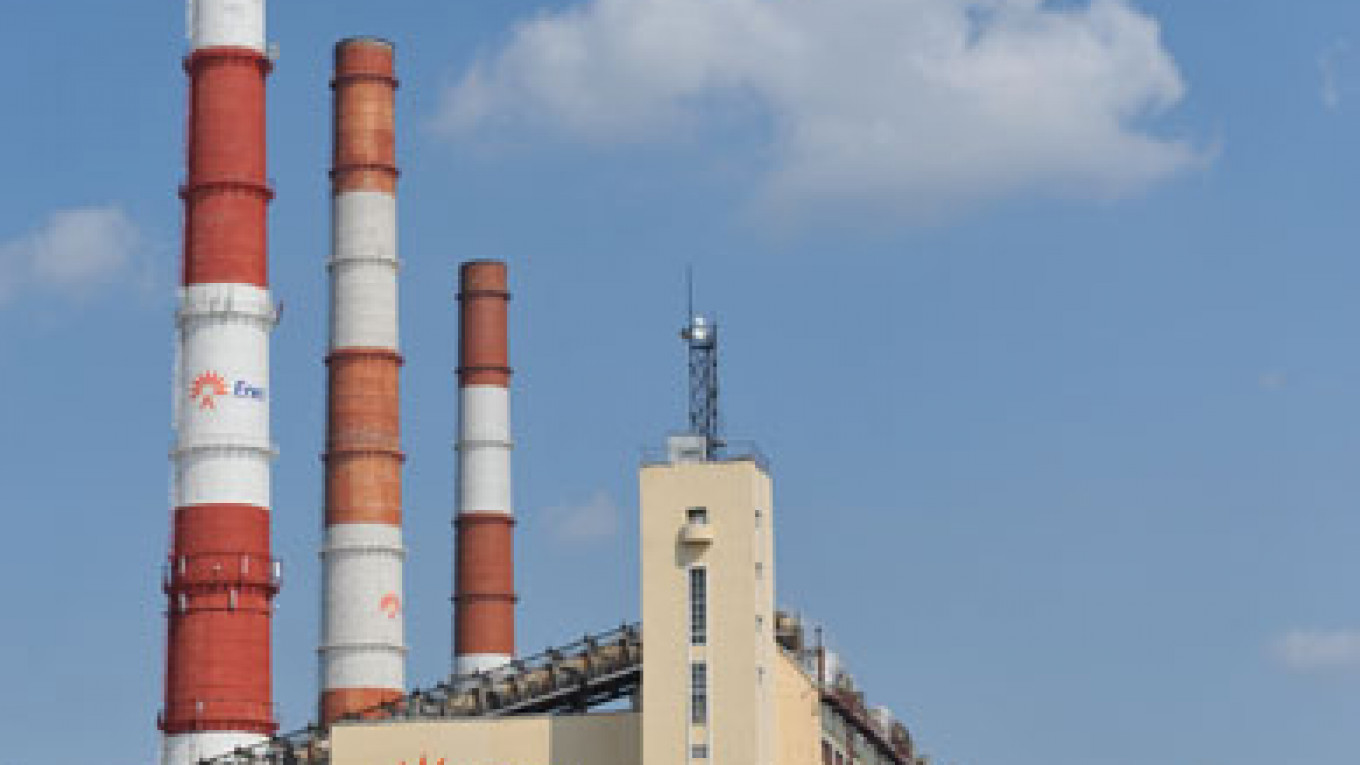The state-backed Russian Direct Investment Fund has attracted a Middle East private equity firm to co-invest in a blocking stake in power producer Enel OGK-5, with the deal slated to be closed by the end of next week, the fund's chief executive Kirill Dmitriyev said Friday.
With a significant portion of funds coming from AGC Equity Partners — a global private equity firm with investors in the Middle East, the transaction is considered one of the biggest investments in Russia by a company from that region, he said in a telephone interview.
A consortium of the RDIF and a group of international private equity investors is buying a 26.43 percent stake in Enel OGK-5 from state-controlled InterRAO in a transaction worth $625 million.
Dmitriyev didn't specify the size of contributions by each party.
AGC Equity Partners will contribute a total of $175 million to mark its first deal in Russia, according to a source close to the RDIF.
The same amount of funds will be invested by Rusenergo Fund — a privately held power fund that invests in Russian power-generation companies, while RDIF and Macquarie Renaissance Infrastructure Fund, which focuses on investments in infrastructure across Russia, will contribute $137.5 million each, said the source, speaking on condition of anonymity because the information is confidential until the deal is closed.
Co-head of AGC Equity Partners, Walid Abu-Suud, couldn't be reached for comment Friday.
"We believe in Russia's energy industry, which is likely to grow in the near future, and OGK-5 is one of the best energy assets," Dmitriyev said.
The asset is attractive, agreed Dmitry Doronin, an analyst at Rye, Man and Gor Securities.
"Creating new facilities is the major driver of the country's power-generation sector, and OGK-5 was the first to complete its investment program, having introduced more than 800 megawatts of additional capacity at its two stations last year," he said by telephone.
This might allow the company to pay dividends for 2011 this year, he said.
The other advantage is that the company is controlled by Italy's energy major Enel, which controls costs better compared with Russian companies in the sector, Doronin said.
Enel, which holds 56.4 percent in the company, wasn't a party to the consortium's deal with InterRAO.
Dmitriyev said the consortium doesn't plan to expand its stake in OGK-5.
The transaction is the second deal by the RDIF, a $10 billion sovereign equity fund that was initiated by President Dmitry Medvedev last year and is designed to entice foreign investors by co-investing in local projects and reducing risks.
The fund made its first investment in late January, buying a 7.54 percent stake in the combined MICEX-RTS bourse together with the European Bank for Reconstruction and Development. The sides didn't disclose the size of the deal.
The RDIF has also attracted Chinese sovereign wealth fund China Investment Corp., which agreed in October to contribute $1 billion into the fund.
"Given that the fund only obtained registration in January, we're satisfied with the pace at which we're moving," Dmitriyev said, adding that the fund is also eyeing new projects in forestry and the automotive construction industry.
But some economists doubted that the RDIF would be able to accomplish its goal of creating a comfortable environment for foreign investors.
"The RDIF's participation in the deal with InterRAO is a classic example of pouring budget money into a state corporation that is managed by authorized people. Such schemes are beloved by both state corporations and the government," Sergei Alexashenko, former deputy finance minister, said in his blog last month.
Alexashenko said the RDIF's deals are just portfolio investments, which don't involve creating new jobs or technology transfer and, thus, don't lead to economic modernization.
"So far, the deals by the RDIF indicate that even for such an investor — with money, the will and the highest sovereign support — it is extremely difficult to find projects to invest in Russia," Alexashenko said.
"Given that, it must be acknowledged that international investment attractiveness rankings, which grant Russia a place at the bottom of the list, tell the truth."
A Message from The Moscow Times:
Dear readers,
We are facing unprecedented challenges. Russia's Prosecutor General's Office has designated The Moscow Times as an "undesirable" organization, criminalizing our work and putting our staff at risk of prosecution. This follows our earlier unjust labeling as a "foreign agent."
These actions are direct attempts to silence independent journalism in Russia. The authorities claim our work "discredits the decisions of the Russian leadership." We see things differently: we strive to provide accurate, unbiased reporting on Russia.
We, the journalists of The Moscow Times, refuse to be silenced. But to continue our work, we need your help.
Your support, no matter how small, makes a world of difference. If you can, please support us monthly starting from just $2. It's quick to set up, and every contribution makes a significant impact.
By supporting The Moscow Times, you're defending open, independent journalism in the face of repression. Thank you for standing with us.
Remind me later.






